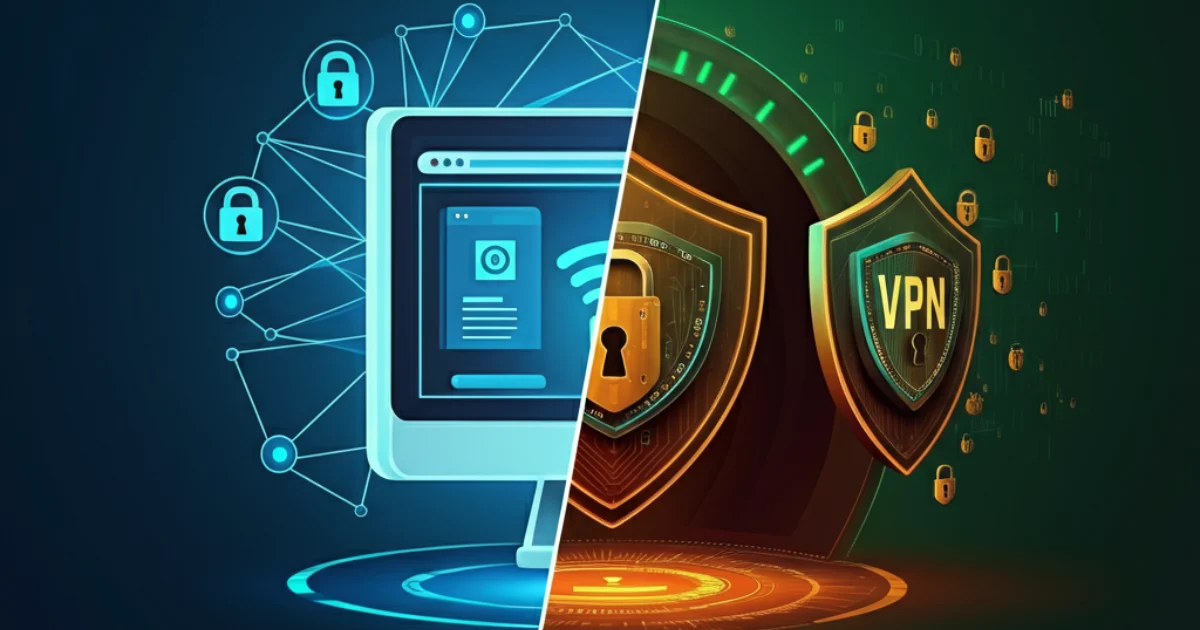When navigating online privacy and security, two common tools often come up in conversations — proxy servers and VPNs. Both serve a vital role in internet security and anonymity, yet they function in fundamentally different ways. Whether you’re trying to access geo-restricted content or safeguard sensitive data, understanding the difference between these two tools can help you make the right choice.
This blog will break down what proxy servers and VPNs are, how they work, and their respective advantages and drawbacks. By the end, you’ll have a clear understanding of when to use each tool and which is better suited to different situations.
Introduction to Proxy Servers and VPNs
To put it simply, both proxy servers and VPNs act as intermediaries between your device and the internet. However, they achieve this in very different ways. To understand why both exist, it’s important to first define each tool and take a closer look at how they function.
Defining Proxy Servers
A proxy server is a computer or program that acts as a middleman between your device and the websites or online services you’re trying to access. When you request information from a website, the request is first sent to the proxy server, which forwards it on your behalf. The process works in reverse when receiving data.
The main goal of a proxy server is to provide a degree of anonymity and control, often restricting access to certain websites or bypassing geographic restrictions.
How Proxy Servers Work
- Device Connection
You configure your web browser or app to route traffic through a proxy server. This could be done manually or through built-in settings.
- Routing Through the Proxy
When you request access to a website, the proxy server receives the request, masks your IP address, and forwards the request to the website’s server. The website only interacts with the proxy server, not you directly.
- Data Transfer
The proxy server retrieves the requested data from the website and sends it back to you.
However, proxy servers typically do not encrypt the information passing through them, which limits their effectiveness in securing your personal data.
Defining VPNs
A Virtual Private Network (VPN) goes a step further than a proxy by creating a secure, encrypted connection between your device and the internet. VPNs not only hide your IP address to maintain anonymity but also encrypt all data passing through, ensuring that no one can intercept or read it.
VPNs are widely used for privacy, security, and bypassing geo-restrictions, particularly by those handling sensitive information.
How VPNs Work
- Establish a Secure Tunnel
When you use a VPN, your device connects to a remote VPN server. A secure, encrypted “tunnel” is created for transferring data safely.
- Masking Your IP Address
Your internet traffic is routed through the VPN server, which replaces your real IP address with one from its location.
- Encrypting Data
All data transmitted between your device and the VPN server is fully encrypted, adding an extra layer of protection against hackers and surveillance.
This encryption ensures your online activities, such as financial transactions or sharing confidential data, remain private and secure.
Key Differences Between Proxy Servers and VPNs
While proxy servers and VPNs both provide anonymity by masking your IP address, their differences lie in security, speed, and cost.
Speed
- Proxy Servers are generally faster because they only reroute web traffic without encrypting it. However, the speed can drop if the proxy server is overloaded.
- VPNs, although secure, can affect your connection speed due to the encryption process. Modern VPN services, however, have minimized this lag significantly with advanced technology.
Security
- Proxy Servers provide basic anonymity but lack encryption. This makes them unsuitable for tasks involving sensitive information.
- VPNs offer complete encrypted data transfer, making them ideal for secure internet use, such as doing online banking or using public Wi-Fi.
Cost
- Many proxies are free or low-cost, but their features are limited, and they may sell user data to cover costs.
- VPNs are generally subscription-based, with costs ranging from budget-friendly options to premium services. The added security often justifies the higher expense.
Advantages and Disadvantages of Proxy Servers
Advantages
- Cost-effective, often free for basic tasks.
- Great for bypassing geo-restrictions to access region-specific content.
- Requires minimal setup and offers quick browsing.
Disadvantages
- Lack of encryption leaves your data vulnerable.
- Often limited to specific applications (e.g., web browsers).
- Free proxies may log and sell your data.
Advantages and Disadvantages of VPNs
Advantages
- Provides a high level of security with end-to-end encryption.
- Protects all types of internet traffic, not just web browsing.
- Allows access to geo-restricted content.
- Ideal for securing public Wi-Fi connections.
Disadvantages
- Can reduce connection speed due to encryption processes.
- Often comes with a subscription fee.
- Requires app installation and setup.
Choosing the Right Option
If your primary concern is basic anonymity or bypassing simple geo-restrictions (such as streaming region-specific Netflix content), a proxy server might suffice. However, if security and data encryption are part of your requirements, or if you often use public Wi-Fi networks, investing in a VPN is the smarter choice.
When deciding, ask yourself:
- What level of security do I need?
- Am I handling sensitive information online?
- How much am I willing to spend?
Modern VPN services often include extra features, such as malware protection and ad blockers, making them a holistic solution for online privacy and security.

